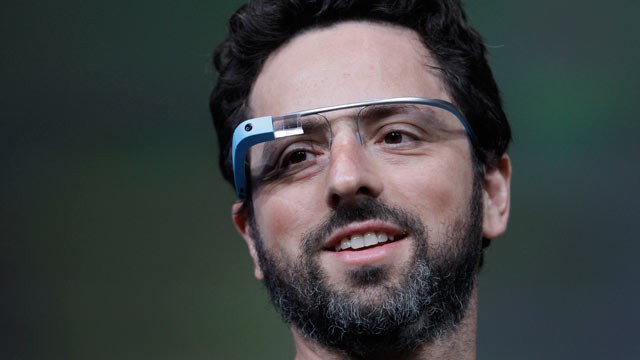Pop Quiz:
How many surveillance devices are within three feet of you right now?
Here's my answer:
-One web-connected camera pointing directly at my face.
-Four additional web-connected cameras, two on my phone, two on my tablet.
-Three web-connected microphones.
-Two GPS devices.
-Two cellular triangulation trackers.
-Three often static IP addresses.
-One web browser that can be identified as completely unique from anyone else, using Java.
-Two web browsers that deliver and have been delivering endless behavior to Google since 2008.
Shall we expand the scope of the question to within fifteen feet?
-An additional six web connected devices, all tansfering data through the same static IP address, but with unique MAC addresses.
-A relatively sophisticated bit of spycraft consumers refer to as the Microsoft X-Box Kinect.
-An electrical grid smart meter that delivers real-time energy usage, not only the utility company but also to me, or anyone with my credentials, over the web.
And if we were to reel the scope of this question to only within inches one's body, there's RFID in our wallets and on our keychains.
And if we were to expand the scope of the question to outisde of fifty feet, there's neighbors with their own prized collection of corporate spytech. There's traffic cameras, parking enforcement vehicles equipt with license plate readers, and on, and on...
I think I've made my point.
Today, we are surrounded by endless instruments for individually identifying, gathering and storing information. These tools are accessible to hackers, jealous lovers, private investagators, concerned parents, major corporations and, of course, the government.
So:
2013.
Just coming around to stopping the cyborgs?
After decades of technology capable of compromising privacy, the Stop The Cyborgs movement was finally created earlier this month.
Recent headlines linked to with sensational panic by Drudge.
This is all a result of hivemind logic deciding that Google Glass is somehow more insidious than anything we've seen thus far.
What a fabulous destraction from the spytech already all around us.
Let's focus on the one device that one wears on their face. The one device that is overt, obvious and public. The very intention of the device is to collect and augment information from the world around us, and hopefully do something with that information to make our days a little easier.
Let's completely ignore all the covert and insideous devices that hide within the gadgets we've welcomed into our lives over the past several decades.
Courtesy of Stop The Cyborgs, the following exchange with a Google spokesperson:
A Google spokesperson responds:
“It is still very early days for Glass, and we expect that as with other new technologies, such as cell phones, behaviors and social norms will develop over time.”
Stop the cyborgs reply:
"We couldn’t agree more. These early days are our opportunity to proactively shape the social norms and technological development through public debate, politics and individual action rather than passively accepting and adapting to new technology."Anyone pretending that we are somehow in the "early days" of the surveillance security discussion has zero grip on the last three decades of computer technology and takes for granted the technology that is already within three feet of us.
You know what's great about Google Glass?
You know when you're staring right at it!
It practically screams, "Hi, I'm a camera! Behave like you're in front of a camera!"
My smartphone's design offers nothing of the sort. Just ask my girlfriend.
So, does it need a blinking light?
Well, that depends. If the freedom to ignorantly assume a camera is not recording, in spite its obvious presence, is a basic human right, then I guess it needs a blinking light.
But in this world, that's staggeringly shortsighted logic to rely on.
It's right up there with not looking both ways when you cross the street, since, duh, pedestrians have the right-of-way. If a car hits you, it's their fault! So they should look, not you! It's a totally weak argument if you end up dead, and it's a totally week argument for assuming a right to privacy.
In 2009, Eric Schmidt, in an interview with Maria Bartiromo, famously said the following:
"If you have something that you don’t want anyone to know, maybe you shouldn't be doing it in the first place."Most people find this notion abhorrent. A violation of a basic human right to privacy.
Believe what you want, but your beliefs do not change the reality of the statement. This has been the reality of our world for quite sometime. It is not a new reality forged by Google Glass. And it is not a reality that will be going away anytime soon.
You can fight it all you want. You can lead debates, make bumperstickers and fight for initiatives to unwind it. You can even become a cybernetic bigot if it floats your boat.
But what I would not suggest is allowing yourself to be consumed by the distraction of wearable devices like Google Glass while ignoring the reality and capability of what's already in our pockets, on our desks and staring at us in our living rooms.
Because that position is too little too late.
That position is like arguing with the driver over right-of-way as you lie bleeding in the intersection.
These are real:


No comments:
Post a Comment